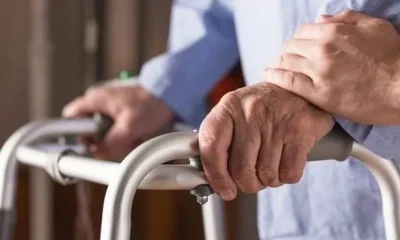Politics
Council prepares for elections
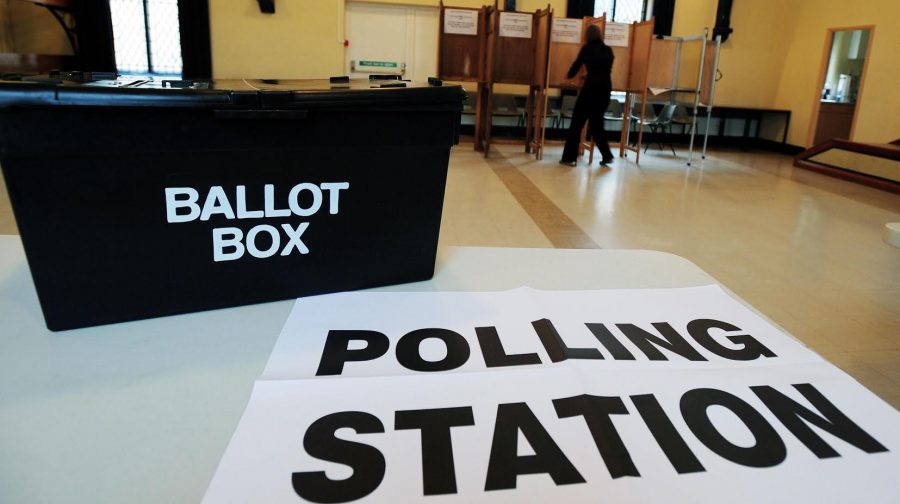
THAT’s it as far as County Council politics go for now.
The Notice of Poll for May 5’s County Councils publishes tomorrow (Friday, March 18) and nominations open for the next County Council term on Monday (March 21).
Those nominations close on Tuesday, April 5.
That’s not a lot of time to get your act together if the elections have come as a horrible surprise, but plenty if you’ve prepared yourself to stand as a candidate.
If not, you need the nominations of ten electors resident in the Ward for which you seek election. However, while the Council goes into pre-election purdah, The Herald does not.
I WANT TO BE ELECTED?
It’s not only Pembrokeshire County Councillors who will be elected on May 5.
On the same day, Pembrokeshire elects its town and community councils.
Pembrokeshire has ten town councils and sixty-seven community councils.
Town and Community Councils serve their community by exercising a range of statutory powers and duties with the aim of improving the quality of life in their locality.
Each council is made up of elected members. However, in many cases, councillors are returned unopposed or are co-opted. For example, only two of the current Haverfordwest Town councillors were elected in 2017, the remainder were co-opted to fill vacancies during the council term.
Whether that’s healthy for democracy or not is a separate debate; but Pembrokeshire leads the way in the proportion of county councillors who did not face the electorate in 2017.
Twelve of sixty county councillors were returned unopposed.
Community and Town councils are responsible to their local electorates for delivering a wide range of services and for the provision and upkeep of local amenities.
County Councillors have a duty to serve their communities and work with Council officers to provide services to the public. Most County Councillors are also Town or Community Councillors
County Councillors meet together regularly as The Council, where they decide overall policy and set the organisation’s budget for the year.
County Councillors might be nominated by fellow councillors to sit on certain committees, for example, the Planning Committee or one of the Council’s scrutiny committees.
The Council Leader is elected by Councillors at the beginning of the Council term and the Leader selects the Cabinet.
PEMBROKESHIRE’S STRANGE POLITICS
Pembrokeshire is unusual in Wales because it returns relatively few councillors who stand for political parties.
Out of sixty councillors at the last election, the Conservatives returned twelve councillors (now eleven following a by-election) Labour returned seven, the Liberal Democrats one, and Plaid Cymru six.
The remainder of the councillors all stood as Independents.
There are, however “Independents” and “Real Independents”.
The Independent Political Group, led by Jamie Adams, ran Pembrokeshire as a one-party state until 2017, when its vote collapsed.
The IPG’s current membership is twelve, although its membership is fluid and some members inch towards more traditional party colours.
The 2022 elections will be the first under new boundaries.
STANDING DOWN
Several councillors are not seeking re-election: those include Sam Kurtz MS, whose Scleddau Ward disappears. Cllr Kurtz could have resigned his seat on election to the Senedd but chose to remain to avoid the costs of a by-election.
He’s donated his councillor’s allowance to local projects. Cllr Josh Beynon steps down, as does veteran Johnston councillor Ken Rowlands. Cllr Rod Bowen steps down from Clydau.
Cabinet member Cllr Phil Baker announced he would step down in May and there are rumours that several other prominent councillors from around the county will not seek re-election, including at least two other members of the IPG.
The changing boundaries will almost certainly affect the council’s make-up. The important question for any candidate standing as an independent is whether they will remain independent or join the Independent Political Group – or any other party grouping.
TURNOUT THE VOTE
In addition, the turnout in local elections is so low that a prospective candidate might only need to rally a handful of extra votes to see off a split field. That was the case in Pembroke Dock Central and Milford Central last time out, where the margins of victory for Cllrs Paul Dowson and Stephen Joseph were tiny. Those margins were not, however, as tiny, however, as the two votes that saw Cllr Tony Baron returned as member for the now abolished Amroth Ward.
In General Elections to Westminster, there are often safe seats in which any opposition effort is token.
Generally, that’s not the case in Council elections – although standing against Cllr Tony Wilcox in Pennar can be a sobering experience for his opponents.
Votes cast in the tens rather than the hundreds or thousands make a genuine difference to election outcomes.
Our prediction for the next Council is that Labour will perhaps gain the odd seat, the Conservatives will lose the odd seat, the Liberal Democrats might gain a seat, Plaid Cymru could gain a couple of seats in the north and east of Pembrokeshire, the IPG might lose ground due to established members’ decisions not to seek re-election. The majority of members will be “Real Independents”, or as Cllr Mike Stoddart calls them “Dictionary Independents”.
Beyond that, Cllr David Simpson is likely to remain leader with some changes to his Cabinet (one enforced) for the first part of the new administration’s term.
Replacing Cllr Simpson will be a tricky job: Jamie Adams will want it but might struggle for cross-party support; an openly political leader from a party group is unlikely to succeed in forming a coalition for the same reason.
All of which might explain why Cllr Adams is keen to find someone to stand against current Cabinet Members, particularly the Cabinet Member for Transformation, Cllr Neil Prior.
Community
‘Harrowing’ distress now the norm for unpaid carers in Wales

“HARROWING” levels of distress have become the norm for unpaid carers in Wales, a committee has heard, with charities warning of a support system “set up to fail”.
Kate Cubbage, director of Carers Trust Wales, told the Senedd’s health scrutiny committee: “There are too many carers who are reaching crisis point without any support.”
Ms Cubbage explained that most councils are supporting fewer than 500 carers, warning: “There are really, really high levels of unmet need within our communities.”
She told Senedd Members that staff are receiving trauma training to support their mental health due to the levels of distress they are seeing among carers.
Ms Cubbage pointed to a University of Birmingham study which found an increased suicide risk among unpaid carers akin to that of veterans who have seen active service.
“One in eight carers has made a plan to end their own life,” she said, calling for carers to be specifically considered in the Welsh Government’s suicide prevention strategy.
“One in ten has made an attempt… at a time when the average local authority has support plans for less than 0.5% of the caring population.”
Warning of deepening poverty in Wales, the witness expressed concerns about a 31% poverty rate among carers – “far higher” than the 22% in the wider population.
Ms Cubbage added that young carers miss more than six full school weeks each year, compared with pupils without caring responsibilities who miss nearer two weeks.
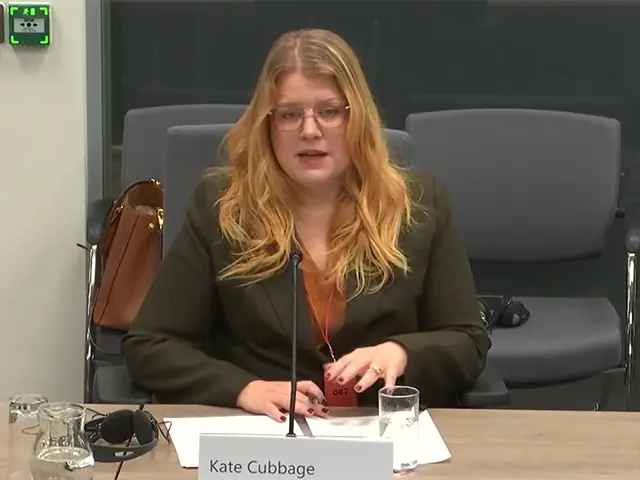
She told the health committee: “It’s no wonder young carers are achieving less at school. They are less likely to go on into further and higher education.
“And if they do make it to university, they’re less likely than their peers to actually graduate.”
Reflecting on a personal note, Ms Cubbage, a parent carer, said her autistic son has accessed services from ophthalmology to audiology over the past 16 years.
“I have never once been signposted to anything that would suggest that I am an unpaid carer or that I can access support… That kind of lived experience is really important.”
Rob Simkins, head of policy at Carers Wales, added: “Things are getting worse: anecdotally, we see that through our services but also that’s what the research tells us.”
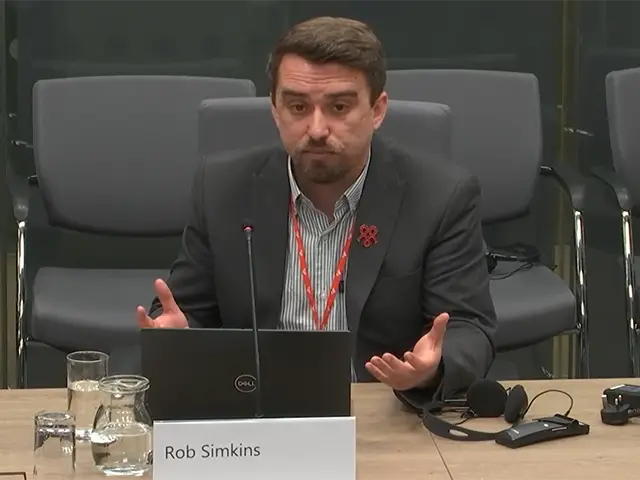
He pointed to a Carers Wales survey which has shown a “shocking” 53% increase in the number of carers cutting back on food and heating.
Giving evidence on Wednesday December 17, Mr Simkins warned of a 39% increase in the number of carers reporting “bad” or “very bad” mental health since 2023.
“All the evidence that we’re collecting shows that this is going in one direction,” he told the committee, adding: “And that’s the wrong direction. It’s a bleak context.”
Mr Simkins said census data shows about 310,000 unpaid carers in Wales but research indicates the number could be nearer 500,000 – roughly 15% of the population.
He cautioned that charities across the country, including Carers Wales, are seeing real-terms cuts in funding from the Welsh Government every single year.
Mr Simkins warned of a “shocking” lack of data and a system “set up to fail” more than a decade on from the then-Assembly passing the Social Services and Wellbeing (Wales) Act.
Warning some councils cannot quantify how many carers’ assessments they could carry out over 12 months, he asked: “How on earth are you meant to collect data from unpaid carers and plan services if you can’t even figure out how many you can assess?”
Asked about carers’ assessments, he highlighted a lack of capacity within councils as he warned a “pitifully low number of carers go on to get any support at all”.
Greg Thomas, chief executive of Neath Port Talbot Carers Centre, told Senedd Members the voluntary sector is being increasingly asked to plug gaps without necessary funding.
He warned the jam is having to be spread “ever-more thinly”, creating a tension between reaching as many people as possible and not wanting to compromise quality of support.
“We’re not quite saying ‘no’ to people,” he said. “But we’re having to say a qualified ‘yes’ about what we’re able to offer… We’re massively overstretched, massively oversubscribed.”
Mr Thomas told the committee the carers’ centre has the required reach and expertise, concluding: “It’s almost give us the tools and we can do the job.”
If you have been affected by anything in this story, the Samaritans can be contacted for free, 24/7, on 116 123, or by email at [email protected].
Community
Pembrokeshire council tax rates could go up in 2026
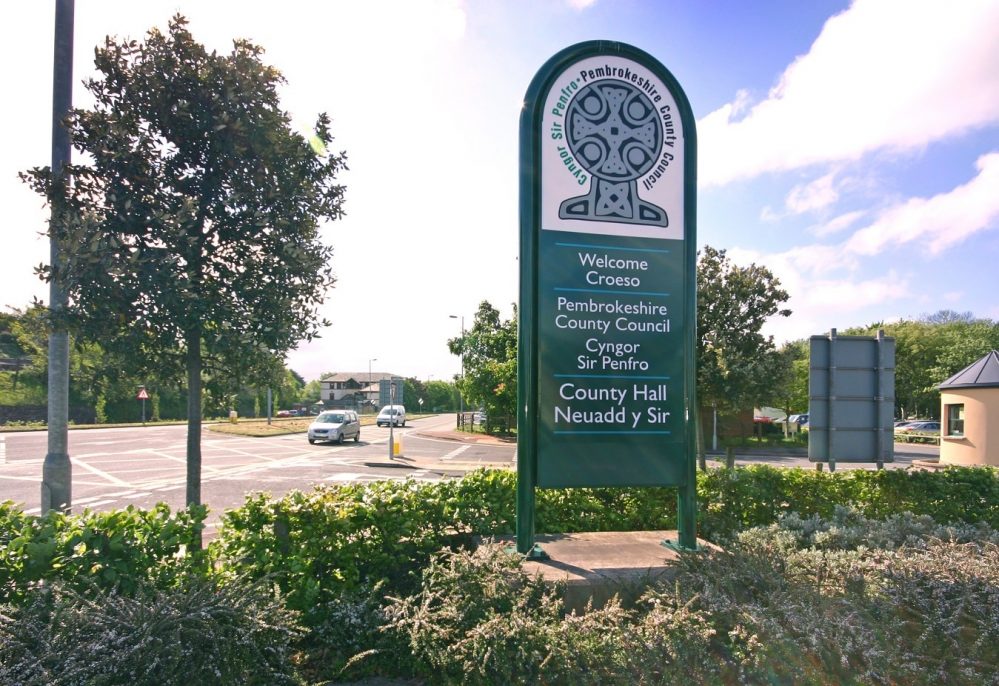
THERE’S just a few days left to have your say on Pembrokeshire’s budget setting for the next financial year, which includes the potential for huge increases in council tax.
Pembrokeshire’s financial situation for next year is some £4m better off after a higher settlement from the Welsh Government, but the council still faces difficult decisions.
While council tax makes up a proportion of the council’s annual revenue, a crucial area of funding is the Aggregate External Finance (AEF) rate from Welsh Government.
Pembrokeshire was to receive a 2.3 per cent increase on its settlement, a total of £244,318,000, amounting to an extra £5,493,000, placing it at joint 13th of the 22 local authorities in Wales.
Now, following a Welsh Government and Plaid Cymru agreement, local authorities including Pembrokeshire have received a better financial settlement.
Speaking at the December meeting of Pembrokeshire County Council, while presenting a report on the outline draft medium term financial plan (MTFP) 2026-27 to 2028-29, Cabinet member for finance Cllr Alistair Cameron said the recent rise in the financial settlement from the Welsh Government had decreased the expected funding gap for the next financial year for the county from £17.7m to £13.6m, but stressed: “There are still increased pressures we are going to have to face.”
The closing date for completed responses to the public consultation is January 4.
The council, in its online consultation, says there are limited ways that the funding gap can be met:
- Increase the rate of council tax charged (each one per cent increase generates approximately £907,000 of additional income).
- Change the way services are provided and delivered – (efficiency gains, reduce what council does etc).
- Increase the amount charged for some services
Cllr Alistair Cameron, Cabinet Member for Corporate Finance and Efficiencies, has said: “It is vitally important that we get the views of as many members of the public as possible to help shape our future proposals with your priorities at the forefront.
“Everyone will be aware that it is increasingly difficult to balance the growing demands on the council but we are determined to put together a budget that enables us to continue to provide essential services for the people of Pembrokeshire.”
The actual setting of the budget and related council tax level along with any potential savings and cuts, will be decided at a later date, with committee scrutiny ahead of Cabinet considering a revised draft budget on February 9, before it is recommended to full council on February 20.
Business
Salon plans for Haverfordwest car valet site approved

RETROSPECTIVE plans to change a Pembrokeshire car sales/valet area to include a barber shop and tanning salon have been given the go-ahead.
In an application to Pembrokeshire County Council, Zizo Barbers & Affordable Cars, of Cambrian Place, Haverfordwest sought permission for the change of use of previously granted valet and car sales area, the works completed in 2024.
A supporting statement through agent Hayston Developments & Planning Ltd said the former commercial garage business has been operating in several guises from the premises for many years and has included petrol sales, motor servicing and repairs, MoTs, vehicle valeting, car sales and customer parking.
This followed on from a 2011 permission for the partial demolition of the original commercial garage, with a later approval for the site refurbishment to provide a workshop, valeting and offices for the existing car sales.
A supporting statement said: “The proposed update to a change of use involves the replacement of a car valeting service, which took place under a covered area at the rear of the site by a wash and valet operation – and restricting this service to those cars being sold at the Cambrian Place site. The use of a former office / store as a barber shop.
“The use of the former customer waiting area as a tanning salon including a new moveable timber shed for use as a meet and greet facility and as a car sales office. Provision of a communal parking area. Whilst retaining the principal use of the site for the sale of used cars.
“It is therefore suggested that the proposal will reduce both the elements of noise and the generation of dust whilst improving air quality as substantially fewer cars being power washed and valeted as well as the visual impact of these activities in this very public location – and with adjacent residential properties.”
Haverfordwest Town Council had objected to the scheme on highway safety grounds, but an officer report recommending approval said: “Highways colleagues have advised that the mixed use at the site is not likely to generate a significant number of trips that would lead to congestion and/or road safety issues due to the hours of operation are suggestive of visitors in the non-peak hours over the course of the day.
“In addition, highways colleagues have confirmed recorded accident history is negligible at the site, with one accident in 2023 at the nearby junction as a result of a rear shunt.”
It also said that, as the site lies adjacent to the A40(T) Welsh Government as a highway authority were consulted on the application, but has not not issued a direction in respect of this application.
One letter of objection had also raised issues of traffic and highway safety, chemical and detergent waste from the site and occasional activity after 5pm.
The report said the cessation of the valeting/washing use will reduce water usage at the site and any activity outside normal hours was an enforcement matter.
The application was conditionally approved by officers.
-

 Crime2 days ago
Crime2 days agoMilford Haven man jailed after drunken attack on partner and police officers
-

 News5 days ago
News5 days agoDyfed-Powys Police launch major investigation after triple fatal crash
-

 Crime2 days ago
Crime2 days agoTeenager charged following rape allegation at Saundersfoot nightclub
-

 Crime3 days ago
Crime3 days agoMan charged with months of coercive control and assaults
-

 Crime4 days ago
Crime4 days agoMan sent to Crown Court over historic indecent assault allegations
-

 Crime6 days ago
Crime6 days agoMan spared jail after baseball bat incident in Milford Haven
-

 Crime4 days ago
Crime4 days agoMilford Haven man admits multiple offences after A477 incident
-

 Crime3 days ago
Crime3 days agoWoman ‘terrified in own home’ after ex breaches court order







